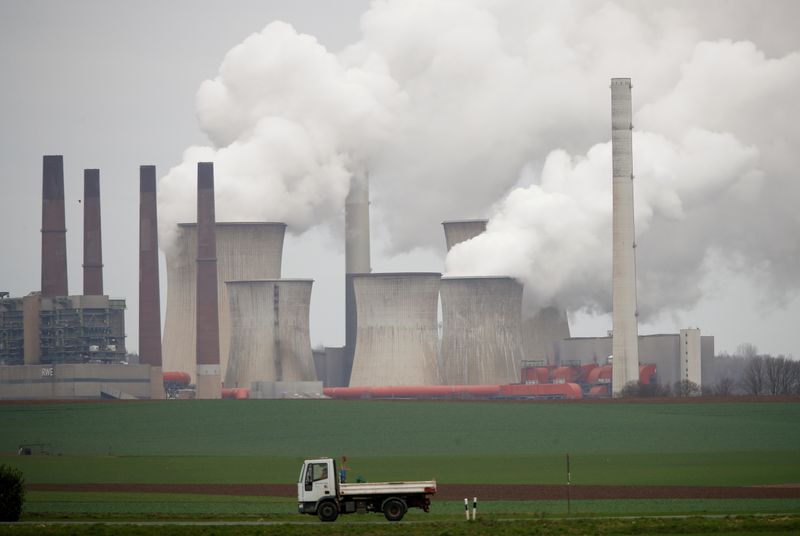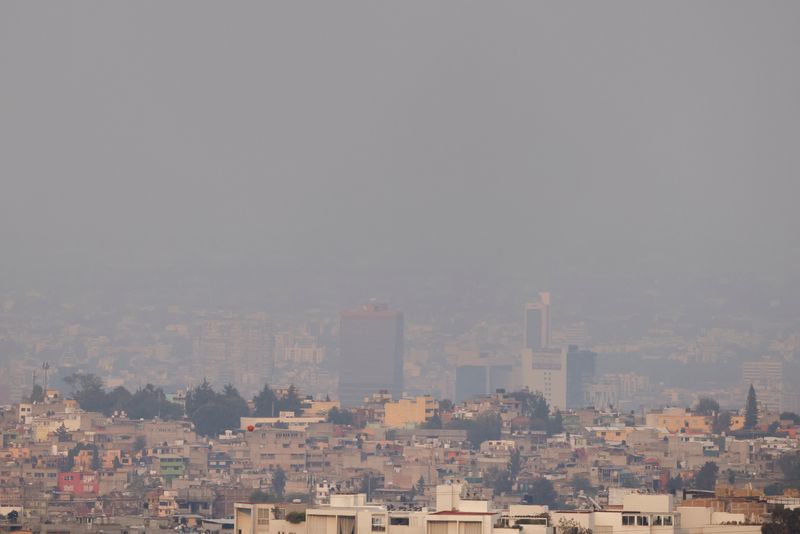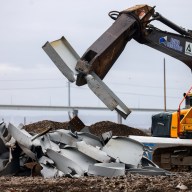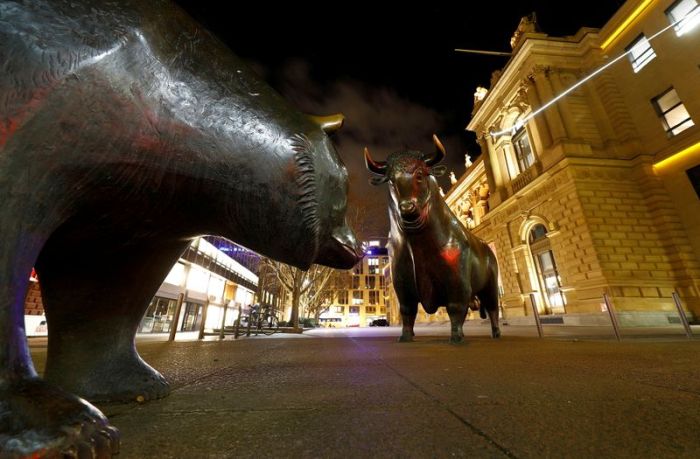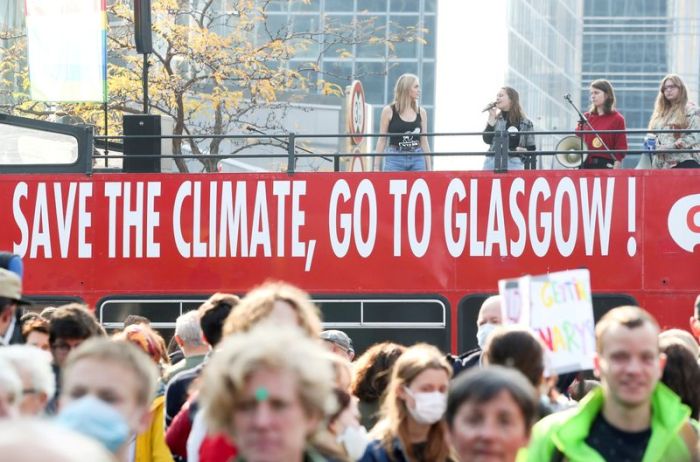By Kate Abnett and Emma Farge
BRUSSELS/GENEVA (Reuters) -Global governments’ plans to cut emissions in the years ahead are not enough to avert catastrophic climate change which would lead to “endless suffering”, a U.N. report said on Monday.
With less than a week until the United Nations COP26 conference begins, the report laid bare the gap between the actions governments are taking today, and what would be needed to meet the 2015 Paris Agreement target to try to limit human-caused global warming to 1.5 degrees Celsius.
“Overshooting the temperature goals will lead to a destabilised world and endless suffering, especially among those who have contributed the least to the (greenhouse gas) emissions in the atmosphere,” said Patricia Espinosa, Executive Secretary of the United Nations Framework Convention on Climate Change (UNFCCC).
Under countries’ current pledges, global emissions would be 16% higher in 2030 than they were in 2010, according to an analysis by the UNFCCC.
That is far off the 45% reduction by 2030 that scientists say is needed to cap warming at 1.5 degrees and avoid its most devastating impacts like the deadly heat waves and destructive storms already battering countries around the world.
“We are nowhere near where science says we should be,” Espinosa said.
Without more ambitious commitments, global temperatures could hit 2.7 degrees Celsius above pre-industrial levels by the end of the century, the UNFCCC said.
The warning came as a separate World Meteorological Organization report showed that carbon dioxide levels in the atmosphere surged to 413.2 parts per million in 2020, rising more than the average rate over the last decade despite a temporary dip in new emissions during COVID-19 lockdowns.
“We are way off track,” https://www.reuters.com/business/cop/world-scrambles-contain-damage-greenhouse-gas-emissions-hit-record-2021-10-25 said Secretary-General Petteri Taalas on prospects for meeting the Paris cap. “We need to revisit our industrial, energy and transport systems and whole way of life,” he added, calling for a “dramatic increase” in commitments at COP26 which runs from Oct. 31 to Nov. 12.
INCOMING PLEDGES
The reports on Monday emphasised the high stakes for the COP26 conferences, where world leaders and thousands of delegates will attempt to secure pledges from countries and enough action from polluters to keep the Paris goals alive.
Scientists say capping global warming to 1.5 degrees would require global net emissions of CO2 – the main greenhouse gas – to fall to zero by 2050.
The UNFCCC said it had received a flurry of new climate pledges in the last month, and that as of Oct. 12 some 143 of the nearly 200 countries that signed the Paris agreement had submitted new pledges.
Most of the pledges received in recent weeks were from small countries responsible for a tiny share of global emissions, however, while submissions from bigger polluters like Saudi Arabia had not moved the needle for emissions over the next decade.
The European Union and United States – the world’s second and third-biggest emitters after China – also set new targets this year to reduce emissions this decade. China and India are among those facing pressure to commit to cut emissions faster.
The concentration of greenhouse gases in the atmosphere will continue to rise for as long as countries keep putting more greenhouse gases into the atmosphere than they can remove.
Emissions, which fluctuate depending on the current level of fossil-fuel burning, are distinct from the carbon dioxide concentrations accumulated over centuries.
The WMO report confirmed that last year’s temporary dip in emissions “did not have any discernible impact on the atmospheric levels of greenhouse gases and their growth rates.” Concentrations of other gases methane and nitrous oxide also rose in 2020 and beat the last decade’s average, it showed.
It also flagged concerns about the ability of the ocean and trees to soak up roughly half of carbon dioxide levels, thus protecting us against potentially more dramatic temperature hikes.
“It’s not automatic that the strength of sinks will continue at the same rate,” said Taalas, describing “alarming” new data showing that a portion of the Amazon rainforest was now emitting carbon rather than absorbing it due to deforestation and fires.
(Reporting by Emma Farge in Geneva and Kate Abnett in Brussels; Editing by Alexander Smith and Toby Chopra)

